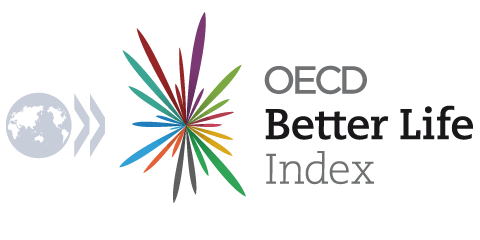Are you feeling better?
By Sue Kendall-Bilicki, OECD
Health is one of the primary concerns for all of us. “How are you”, “Comment ça va”, Wie gehts” are not just common courtesies when we meet, they reflect our sense that feeling well is a large part of feeling good. But how much is good health worth? And how much are we willing to spend on it? We certainly think it is important – health consistently comes out as one of the top three concerns of people creating their Better Life Index, alongside education and general life satisfaction. But as the economic and financial crisis leaves governments having to cut spending to reduce debt and curb deficits, how is healthcare doing?
The answer is that good health in the 21st century does not come cheap -- health spending accounted for 9.5% on average of gross domestic product (GDP) in OECD countries in 2010. Granted, this was lower than in 2009, but not by much – it was at 9.6% that year. And this small decrease comes after years of increase -- overall health spending in OECD countries grew by nearly 5% per year in real terms in 2000-2009. The reversal of this trend in 2010 was largely the result of cuts in government spending on health, which really began to take effect in 2010. This was particularly the case in the European countries hardest hit by the recession.
Public spending on health fell by 0.5% across the OECD in 2010, but in Ireland, Iceland, and Estonia, overall health spending fell by more than 7% , driven largely by the public cuts.
But how much money your country spends on health does not necessarily tell how healthy you are, or indeed how healthy you feel. Spending levels do not explain why 72% of men in OECD countries say they are in good or very good health, but only 67% of women, as the Better Life Index shows. Or why people in Japan, where life expectancy is among the highest in the OECD, are less likely to report being in good health than people in the United States, where average life expectancy is some five years less. And in Ireland and Iceland, life expectancy and self-reported health were at the top end of the OECD spectrum before the latest cuts.
How healthy we are also lies to a certain extent in our own hands. We all know that people who do not smoke, do not over-indulge in alcohol, who are physically active and eat healthily are at less risk of dying early. But while many countries have been successful in reducing tobacco consumption, overweight and obesity, another risk factor, is on the rise. The rate of obesity has more than doubled in a number of OECD countries over the past 20 years, and in 21 of the 34 OECD countries, more than 50% of the adult population is now defined as being overweight or obese.
To put it another way, “a healthy mind in a healthy body” is still a great recipe for life.
Find out more
OECD Health Data 2012 is available in OECD.Stat, the statistics portal for all OECD databases. More information about the database is available at www.oecd.org/health/healthdata.
See Key Tables from OECD on Heatlh.
Or see also who is feeling healthiest under the health topic of the Better Life Index


Comentarios